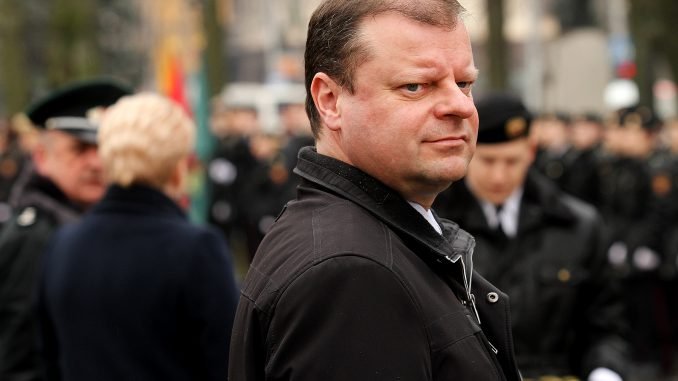
For a few weeks now we have been hearing assurances that everything has been agreed upon regarding the ruling coalition’s revamp and that an agreement will soon be signed. But the date keeps getting pushed back further and further.
What is happening with the majority – are they struggling to come to an agreement with potential partners or with their own? This was discussed on TV3 news’ Dienos Komentaras show with BNS editor-in-chief Vaidotas Beniušis.
What is going on with the coalition composition? It seems that the politicians keep saying that an agreement will soon be signed, but it keeps getting postponed.
In order for coalition negotiations to be effective and results-oriented, leadership is important. Specifically, that of the prime minister.
The PM should be the one to make key decisions on both the minister and the upcoming budget. The PM should display initiative and clearly draw up negotiation boundaries.
Now, looking from the side, the impression could emerge that Saulius Skvernelis is neither displaying leadership, nor initiative. He has left himself a number of paths: starting with resignation and finishing with work in the European Commission. The most realistic variant is that of him remaining prime minister.
In this context, the coalition partners, seeing their fairly difficult situation, faltering ratings, are musing on how to remain in politics after next year’s Seimas elections, they want to be visible, want to present themselves as socially sensitive.
Such a lack of leadership and mixture of factors leads to us seeing numerous “maybes”, many declarations, much jostling, many various poses are taken, intimidation, threats. And it would seem that this process will continue for a time yet.
You say that Saulius Skvernelis should take the lead, but it appears that Ramūnas Karbauskis is steering. So, what are we to think – an internal disagreement or external disagreements with coalition partners regarding posts?
On one hand, there is a lack of the prime minister’s final decision and a lack of vision from him – that’s one of the key factors. Because the PM should be the axis, which everything is built around.
But equally, the Order and Justice party and the Social Democratic Labour Party can see that there is a real possibility that they will not enter power after the next Seimas elections. This raises tensions inside the parties, thus various scenarios are being considered.
Some may even want a joint electoral roll alongside the “Farmers” in the coming Seimas elections, thusly seeking to assure themselves at least a few seats in the next Seimas.
Others meanwhile believe that it would be best to move to the opposition and from there criticise the government, thus seeking visibility.
What of posts, what are we hearing about that so far? Both Order and Justice, whose Seimas group recently broke up, and Social Democrat Labour wish to receive a couple of ministries. Are they not asking for too much, considering they are so small?
Their prospects are certainly not rosy. On the other hand, without them, it would not be possible to form a ruling coalition and they know this well.
Their large appetite is explicable. After all, in any negotiations, you first raise your price up as high as possible. Another factor is that there are many scenarios within the parties. Some may already be burying their hopes and considering how to ensure their personal welfare – pushing questions of annuities and other similar matters.
Do statements that the negotiations are being derailed by disputes regarding the office of European commissioner have any basis? Because we have been hearing how Mr. Saulius Skvernelis wants it, Mr. Elvinas Jankevičius and Mr. Linas Linkevičius want it.
Most likely, more than half of all members of cabinet wish that post. Including the prime minister. It would seem that Saulius Skvernelis has not abandoned it. However, I believe that he understands the risk that his candidacy could be rejected during deliberations in the European Parliament.
It could be rejected due to lack of English language skills and because his cabinet did not feature women, as well as his friendship with Poland, which could prove an issue for certain critics of the Polish government. But he is keeping it as an option.
As Skvernelis says himself, he first wants to see, who will become the president of the European Commission. And only then he promises that talks and decisions will follow. No doubt, this position is appealing to many politicians, it is one of the negotiation objects, however, it is not the main question.


Be the first to comment